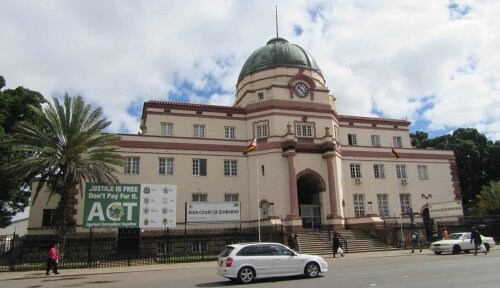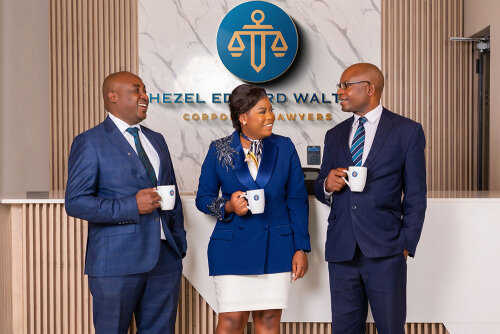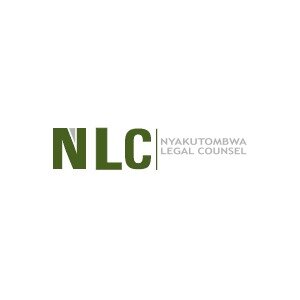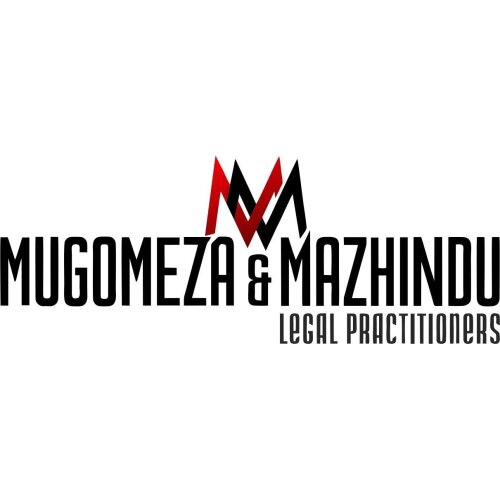Best Legal Document Lawyers in Zimbabwe
Share your needs with us, get contacted by law firms.
Free. Takes 2 min.
Or refine your search by selecting a city:
List of the best lawyers in Zimbabwe
About Legal Document Law in Zimbabwe
Legal Document Law in Zimbabwe encompasses a wide range of areas, including drafting, executing, and storing various legal papers. These documents can include wills, contracts, deeds, and affidavits, among others. The process is governed by a mix of statutory laws and common law principles, which aim to ensure that legal documents are valid, enforceable, and serve their intended purpose. Understanding the requirements and nuances of these laws is crucial for both individuals and businesses to safeguard their interests and comply with legal obligations.
Why You May Need a Lawyer
There are several instances where one might need legal assistance regarding legal documents in Zimbabwe. Common scenarios include:
- Drafting Contracts: Ensuring that contracts are legally sound and protect your interests.
- Estate Planning: Creating wills and trusts to manage how your assets will be handled after your death.
- Business Agreements: Involving partnerships, mergers, or acquisitions where detailed and precise documents are crucial.
- Property Transactions: Deeds and leases require careful drafting and review to avoid disputes.
- Court Filings: Preparing affidavits or other legal documents to support your position in legal proceedings.
- Dispute Resolution: In cases where the validity or interpretation of a document is contested.
Local Laws Overview
In Zimbabwe, the formation and validity of legal documents are influenced by several key legal principles:
- Capacity: The parties involved must have the legal capacity to enter into an agreement or execute a document.
- Intention to Create Legal Relations: Documents must clearly express the intentions of the parties involved.
- Consent: All parties must give genuine consent free from duress, fraud, or misrepresentation.
- Formalities: Some documents require specific formats, stamps, or registrations (e.g., property deeds).
- Legality: The content of the documents must be lawful and not contrary to public policy.
Frequently Asked Questions
What makes a contract legally binding in Zimbabwe?
A contract is legally binding if it demonstrates offer, acceptance, consideration, and the intention to create legal relations, and involves parties with legal capacity.
How can I ensure my will is valid in Zimbabwe?
To ensure validity, the will must be written, signed by the testator in the presence of two witnesses, and both witnesses must sign the will in your presence.
Do I need a lawyer to draft a lease agreement?
While not mandatory, having a lawyer draft or review your lease can help protect your rights and prevent future disputes.
What should I do before executing a legal document?
Understand all terms, confirm your obligations, seek legal advice if unsure, and ensure the document complies with legal formalities.
Can I contest a legal document after signing it?
Yes, but only under certain circumstances, such as if you were coerced into signing or if the document contains significant errors or omissions.
What role do notaries play in legal documents?
Notaries verify the identity of signatories, witness the signing of documents, and can provide declarations that a document is authentic and executed properly.
How are digital signatures treated under Zimbabwean law?
Digital signatures are recognized, but certain types of documents may still require physical signatures for validity.
Who can witness my signature on a legal document?
Typically, a legal document can be witnessed by any adult who is not a party to the document or benefit from its execution.
What happens if a legal document is notarized incorrectly?
If a document is improperly notarized, it may be considered invalid or unenforceable, potentially leading to legal disputes.
How can I revoke or amend a legal document?
Revocation or amendment typically requires executing a new document or addendum that clearly states the changes or revocations, following the same formalities as the original.
Additional Resources
If you need further assistance, consider reaching out to the following resources:
- Law Society of Zimbabwe: Provides general legal guidance and resources for locating a qualified lawyer.
- Ministry of Justice, Legal and Parliamentary Affairs: Handles legislative issues and can provide information on legal documentation requirements.
- Zimbabwe Human Rights Commission: Offers advice and support related to human rights aspects of legal documentation.
Next Steps
If you require legal assistance with legal documents, consider the following steps:
- Identify Your Needs: Clearly understand what legal documents you need or issues you face.
- Consult a Lawyer: Seek out a lawyer specializing in the relevant area of law for expert advice.
- Review Your Options: Discuss options and strategies with your lawyer to address your specific situation.
- Conduct Due Diligence: Gather and prepare all necessary information and documentation ahead of legal proceedings.
- Proceed with Legal Assistance: Allow your lawyer to draft, review, or negotiate the relevant documents on your behalf.
Engaging the right legal experts will ensure that all procedures are correctly followed, and your interests are well protected.
Lawzana helps you find the best lawyers and law firms in Zimbabwe through a curated and pre-screened list of qualified legal professionals. Our platform offers rankings and detailed profiles of attorneys and law firms, allowing you to compare based on practice areas, including Legal Document, experience, and client feedback.
Each profile includes a description of the firm's areas of practice, client reviews, team members and partners, year of establishment, spoken languages, office locations, contact information, social media presence, and any published articles or resources. Most firms on our platform speak English and are experienced in both local and international legal matters.
Get a quote from top-rated law firms in Zimbabwe — quickly, securely, and without unnecessary hassle.
Disclaimer:
The information provided on this page is for general informational purposes only and does not constitute legal advice. While we strive to ensure the accuracy and relevance of the content, legal information may change over time, and interpretations of the law can vary. You should always consult with a qualified legal professional for advice specific to your situation.
We disclaim all liability for actions taken or not taken based on the content of this page. If you believe any information is incorrect or outdated, please contact us, and we will review and update it where appropriate.
Browse legal document law firms by city in Zimbabwe
Refine your search by selecting a city.
















